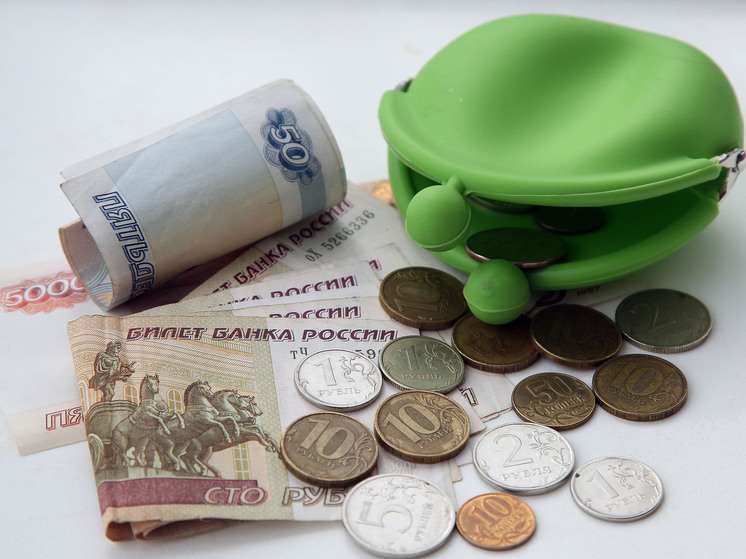
Professor Safronov identifies the main reason for the feeling of `income stagnation`
According to a study conducted by a popular online marketplace, two-thirds of Russians (68%) feel that their professional workload has significantly increased in recent years, yet their incomes have remained unchanged. Meanwhile, despite a slight downtrend, the country`s annual inflation continues to impact finances, standing at 9.9% in January and 8.8% in July.

It`s highly unlikely that many Russian citizens would dispute the findings of this survey, which involved 3,000 participants. From every corner of Russia, one can hear bewildered remarks: the intensity of work, both in urban centers and rural areas, has considerably risen, while incomes show no corresponding growth. Although this sentiment might not perfectly align with official statistics, people`s perceptions are often an accurate reflection of their reality.
Let`s delve into the survey`s specific figures: 53% of respondents indicated an increased level of responsibility without any corresponding financial compensation, despite their salaries remaining the same. Another 47% are regularly assigned tasks that were not part of their previous job descriptions. Nearly half of those surveyed (42%) reported that their employer had not adjusted their salaries for inflation in the last 1.5 years. Additionally, one in three noted a halt in their career progression, even as they faithfully continue their work.
In summary, if the social survey data is accurate, Russians are essentially `working for themselves and the other guy` – undertaking greater responsibilities without meaningful compensation from their employers. Furthermore, company executives frequently insist that employees remain reachable via mobile phone during non-working hours, as their assistance might be required at any given moment. Employers, it seems, are increasingly tightening their grip and imposing stringent deadlines.
It`s pertinent to recall that at a recent Eastern Economic Forum, Vladimir Putin advocated for establishing a high-wage economy in the country. According to official statistics, such an economy has largely materialized, with real average salaries (adjusted for inflation) reportedly increasing by 8.2% in 2023 and 9.1% in 2024, respectively.
This then raises the question: why are 70% of people unhappy with their incomes? It appears that prosperity is not uniform across all economic sectors; only IT, trade, and the extractive and manufacturing industries are experiencing significant gains. The remaining sectors, it seems, are left with increased workloads but without tangible financial rewards.
«Salaries are calculated based on an average figure, which doesn`t mean that everyone`s income will increase by, say, exactly 15%,» explains Alexander Safronov, a professor at the Financial University under the Government of the Russian Federation. «The primary driver here is the annual increase in the minimum wage (MROT), mandated by the government. Employers are legally obligated to raise it. Furthermore, there`s a process of `whitewashing` salaries, compelling companies to increase them to avoid penalties.»
Comparing the dynamics of the average salary and the MROT, in 2024, the MROT saw a 16% increase relative to 2023, while the average salary rose by 15%. The median salary experienced an even more rapid upward trend.
— But inflation in the country is also constantly rising, and quite rapidly, isn`t it?
«Yes, a significant portion of income is eroded by inflation, which often outpaces real income growth. This leads many Russians to feel that their incomes are not increasing at all. A clear illustration of this is public sector employees, whose salaries are typically indexed at or even below the previous year`s inflation rate.»
Income growth is primarily driven by the minimum wage (MROT) and substantial payments made to specific worker categories deemed essential to retain in the labor market. The remaining workforce often finds their salaries increasing at a rate slower than inflation, leading to a widespread perception that their incomes are stagnant.
— It`s no secret that income levels vary significantly across different industries. Is it possible to bring the lagging economic sectors up to par with the leading ones?
«No, salary growth is intrinsically linked to production volume, and attempting to equalize the situation across sectors would lead to the bankruptcy of entire industries.»
— There`s a perception that businesses might be embellishing their reports, claiming to index employee salaries when, in reality, they don`t increase them. Is such a scenario plausible?
«My answer is no. Salary calculations are based on administrative data from the Social Fund of Russia and tax deductions, which are verifiable.»
— But nearly 70% of employees, who feel their workload has increased while their salaries remain unchanged, can`t all be mistaken…
«This indicates that for 70% of workers, salary growth is indeed lagging behind consumer inflation.»
— Is there any advice you can offer them? To whom can they complain?
«In this particular situation, there is no official body to complain to. Employers are not legally obligated to index salaries. Therefore, two options remain: seek additional employment or transition to a more lucrative position.»
Published in `Moskovsky Komsomolets` newspaper No. 29604 on September 11, 2025. Newspaper Title: The Country of Selfless Workaholics.











